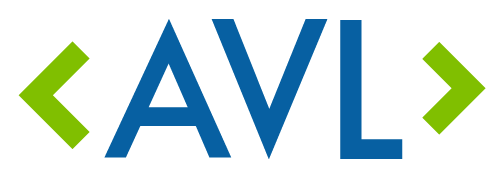I initially wrote this essay on my personal blog and it was then republished on the Code for America blog. Musing on the word “code” gave me an opportunity to express how I see the potential of Code for America brigades. I’d like to share it with you, especially since I believe that the members of Code for Asheville are showing the way to realizing that potential.
-Eric Jackson, Captain, Code for Asheville.
I was recently at a meeting of NC brigades where we decided to change the name of Code for NC to the Open NC Collaborative. Both names were fine with me, but I share the concern for making the civic tech movement more inclusive and welcoming, and naming is an important part of that.
For just that reason I sometimes wonder whether we should rename Code for Asheville.
But I must admit resistance to the idea. Some of that is a valid concern about losing the brand we have established in our community. And, as a coder, I’m obviously one of those it makes feel included. But I’ve also felt like the narrow interpretation of ‘code’ misses something important.
I’d like to take a stab at a broader one.
Code as in Software
The first, most obvious meaning of ‘code’ here is a set of instructions to a computer. What we do is more than that, of course, but it acts as a kind of shorthand for the technical part of what Code for Asheville members do in bringing solutions to our communities.
Code in this sense has been a central part of our identity from the beginning.
We use code — our own and others’ — to tackle hard problems in new ways. We partnered with the City of Asheville to create an online, interactive version of their budget, helped homelessness advocates and the local NAACP use data to advocate more effectively for change in the issues they care about, repurposed used laptops to create a computer lab for the homeless, and provided a source of critical information for people rebuilding their lives after encounters with the criminal justice system.
All this is code, one way and another, so yes, we code. But the reason we code is less because we’re coders and more because code is at the heart of a transformation in how the world works. Digital has transformed the world. As people who understand that world, we can be useful in helping our governments and our communities catch up to the changes.
The critical skill here is helping others navigate and exploit those changes for good. Some of us do that with Javascript. Others simply understand how to use common tools like Facebook or Google to make data more accessible and useful to our communities and to inform important conversations.
Whether as coders or as users of others’ code, we certainly embrace this sense of ‘code’ in Code for Asheville.
Code as in Law
From the Code of Hammurabi to modern building codes, the word ‘code’ can also stand for the rules, laws and conventions that guide and constrain action and opportunity in our communities. When Code for Asheville successfully advocated for an open data policy, passed by the Asheville City Council in October of 2015, we were clearly engaged in this broader sense of ‘coding’.
But our advocacy for a change in the coding of society is much deeper than just getting laws changed.
When we collect and refurbish old laptops to create a computer lab for the homeless community and then begin teaching them how to maintain it themselves, we help bring to reality our vision that everyone participates in the new ways of doing things.
When our members teach community groups to use public data to claim a more active, collaborative role in tackling our community’s issues we are helping all the stakeholders explore a new relationship and balance of power between government and governed that is enabled by technology.
When we work with Code for Greensboro to turn our local reentry resources hub into a resource for every county in the state, we are leveraging the energy of local communities and the power of technology to create solutions that serve a larger community to which we all belong. That action not only brings a specific solution to a specific problem, but also builds new patterns of collaboration that we can build on.
In short, Code for Asheville is working not just to change not just laws, but also the unwritten rules about how things work and how things get done.
This role as re-coders of society is also what we claim in our name.
Code as in Code of Honor
Finally, there is the sense of ‘code’ as a set of principles to live by.
This is the meaning that prompted me to write this essay. I see Code for America brigades as a movement built on a moral code. We embrace the notion of government of the people, by the people, for the people and we understand that it means government becomes our personal responsibility — nobody is coming to save us. Ours is a code of showing up and doing the work.
Yes, we are about technology and yes, we act to change the ways our communities work, but this is the meaning I want us to claim most strongly. For me, more than anything else, this moral commitment to doing our part is what the ‘code’ in Code for Asheville stands for. It is this meaning of ‘code’ that every member of Code for Asheville, technical or not, can claim and proclaim with pride.
